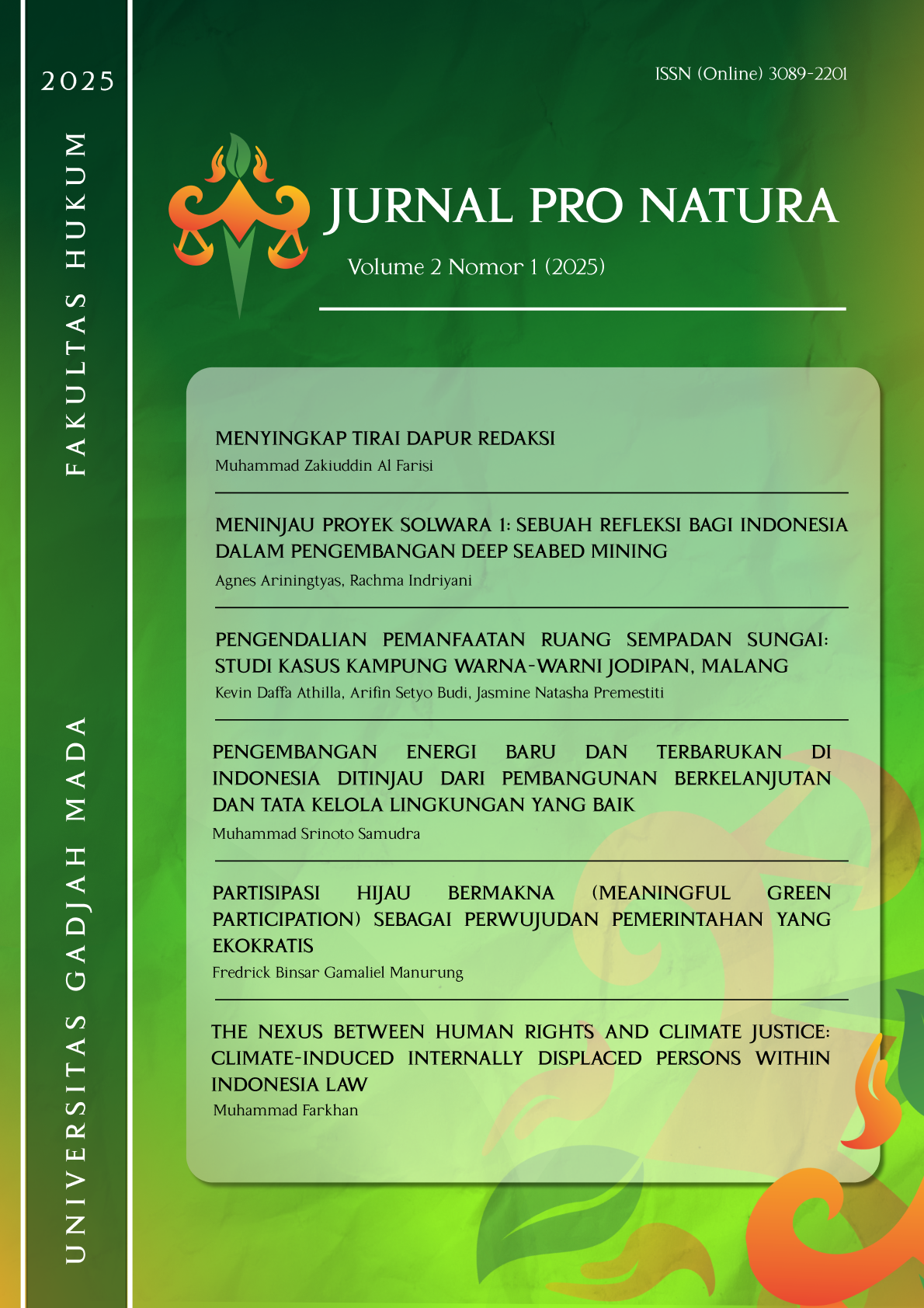Meninjau Proyek Solwara 1: Sebuah Refleksi Bagi Indonesia dalam Pengembangan Deep Seabed Mining
Abstract
Proyek Solwara 1 adalah inisiatif pertambangan dasar laut pertama di dunia yang bertujuan untuk mengeksploitasi Endapan Sulfida Masif Dasar Laut (SMS) di perairan lepas pantai Papua Nugini. Proyek ini menghadapi tantangan signifikan terkait penerapan prinsip kehati-hatian, mengingat dampak lingkungan potensial yang belum sepenuhnya dipahami terhadap ekosistem laut dalam yang sensitif. Artikel ini mengkaji proyek Solwara 1 untuk memberikan wawasan penting bagi Indonesia dalam pengembangan penambangan dasar laut dengan menunjukkan bagaimana penerapan prinsip kehati-hatian dalam proyek tersebut mencakup berbagai langkah mitigasi dan strategi manajemen risiko yang ketat. Namun, artikel ini juga mengidentifikasi tantangan dalam menerapkan prinsip ini, terutama terkait dengan data ilmiah yang terbatas tentang ekosistem target dan ketidakpastian mengenai dampak jangka panjang. Selain itu, keterlibatan pemangku kepentingan lokal dan transparansi dalam pengambilan keputusan perlu ditingkatkan untuk memastikan keadilan dan keberlanjutan proyek. Bagi Indonesia, implikasi temuan ini menyoroti pentingnya prinsip kehati-hatian dan pengembangan regulasi serta teknologi yang lebih canggih untuk mendukung penambangan dasar laut yang bertanggung jawab dan berkelanjutan.
Copyright (c) 2025 The author(s)

This work is licensed under a Creative Commons Attribution-ShareAlike 4.0 International License.
Penulis yang menerbitkan di jurnal ini menyetujui ketentuan berikut:
Penulis memegang hak cipta dan memberikan hak publikasi pertama kepada jurnal dengan karya tersebut secara bersamaan dilisensikan di bawah Creative Commons Attribution License yang memungkinkan orang lain untuk berbagi karya dengan pengakuan atas kepenulisan karya dan publikasi awal di jurnal ini.
Penulis dapat membuat perjanjian kontrak tambahan yang terpisah untuk distribusi non-eksklusif dari versi terbitan jurnal (misalnya, mempostingnya ke repositori institusi atau menerbitkannya dalam buku), dengan pengakuan atas publikasi awalnya pada tahun jurnal ini.
Penulis diizinkan dan didorong untuk memposting karya mereka secara online (misalnya, di repositori institusi atau di situs web mereka) sebelum dan selama proses penyerahan, karena hal ini dapat menghasilkan pertukaran yang produktif, serta kutipan yang lebih awal dan lebih besar atas karya yang diterbitkan.


